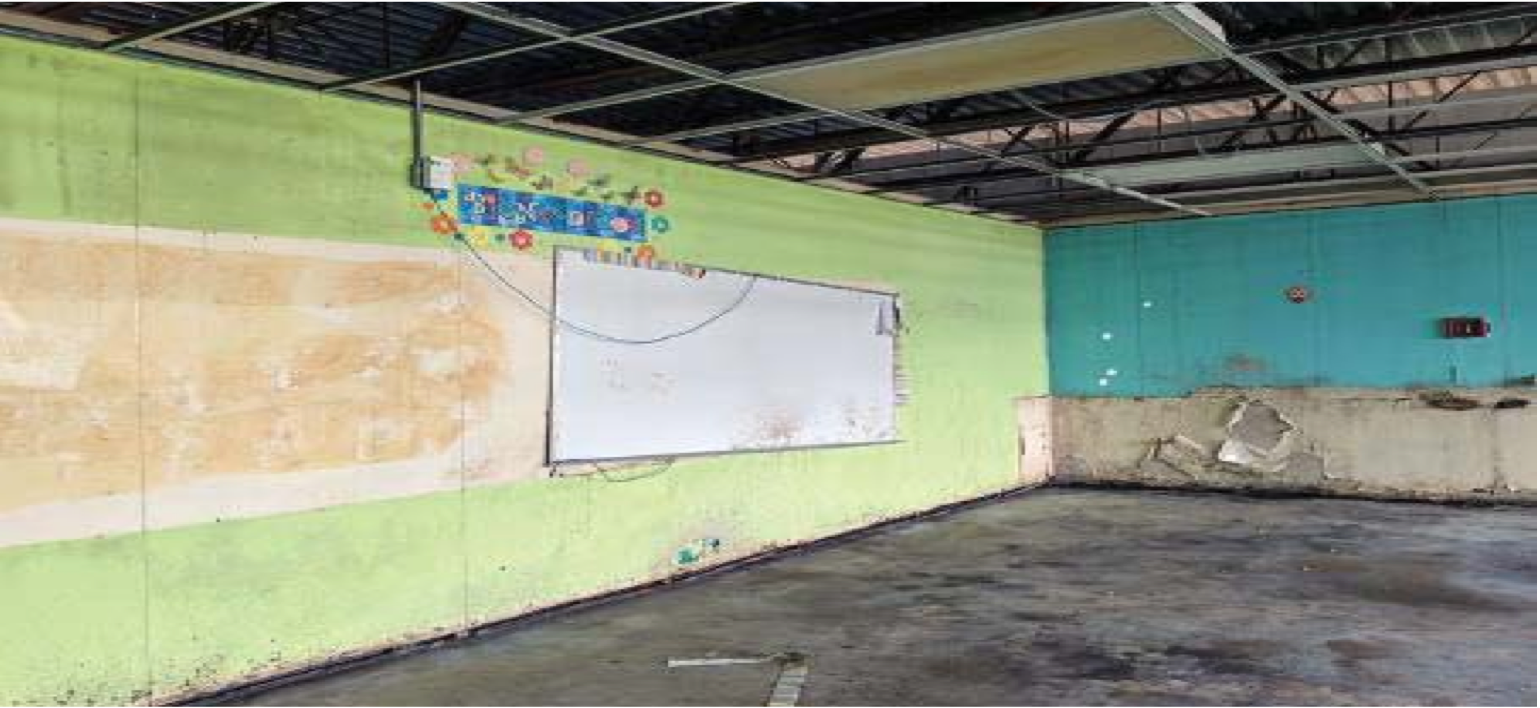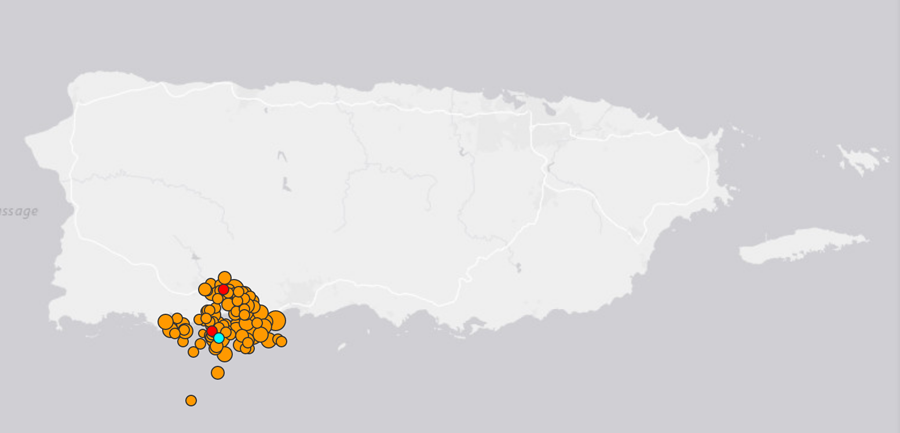Report: Education Dept. ‘lacks capacity’ to manage $322M in FEMA funding

The Puerto Rico Education Department has not complied with the requirements laid out by the Federal Emergency Management Agency related to some $322 million awarded after Hurricane María in 2017, earmarked for recovery efforts.
A report released last week detailing the findings of an audit commissioned by the Department of Homeland Security’s Office of the Inspector General, confirmed that the Education Department “does not have the capacity to effectively manage FEMA grant funds,” which as of Dec. 14, 2018 totaled some $322 million in public assistance grants, the audit’s cutoff date.
The federal watchdog agency conducted a review of the funding granted to the Education Department after Hurricanes Irma and María struck Puerto Rico in September 2017. The latter storm tore through the island causing catastrophic damage to public infrastructure and homes.
FEMA was one of the agencies that kicked into action post-storms, obligating funds in coordination with local government authorities, including the Central Office of Recovery, Reconstruction and Resiliency, known as COR3.
The DHS-OIG hired the William Adley & Co. to conduct an audit to determine whether FEMA ensured that COR3 and Education “established and implemented policies, procedures and practices to ensure grant funds awarded to disaster areas are accounted for and expended according to federal regulations and FEMA guidelines.”
The Education Department, which experienced millions in damages, was approved to receive funding to cover 17 projects including debris removal, food, and security service at emergency shelters immediately following the hurricane, and temporary school repairs.
While recipients are responsible for proper administration of the grants, FEMA’s job is to hold the recipient accountable to the terms of the funding agreement, the DHS-OIG’s report stated.
In its report, the DHS-OIG concluded that Education has not had “adequate expertise to complete its emergency work and submit timely requests for reimbursement. [Education] needs additional technical assistance and monitoring to ensure compliance with federal procurement regulations.”
Specifically, the report shows that the Education Department has shown significant delays in drawing down funds for debris removal services under FEMA’s Category A and completing some of its emergency protective measures under FEMA’s Category B classification. Both project categories require that work be completed within six months of a disaster declaration, which in Puerto Rico’s case happened in early October 2017.
FEMA approved extensions in both categories: until Mar. 31, 2019 for Category A work, and through May 30, 2019 for Category B projects, “because of the catastrophic nature of the disaster, which significantly impacted the [Education Department’s] ability to respond,” the report confirms.
Despite the extensions, Education told FEMA it expected to finish Category B work around August 2020, or almost three years after the disaster declarations.
Further, as of Dec. 14, 2018 ― the audit’s cutoff date ― Education had only drawn down $15.5 million (5%) of the $304 million obligated for Category A and B work. The difference in funding falls under other project categories.
“[Education’s] attempt to implement its projects without the knowledge of and expertise in FEMA requirements and without demonstrated experience planning large disaster recovery projects, resulted in challenges and delays, including delays in approval of project worksheets,” the DHS-OIG report stated.
As of Dec. 14, 2018, the Education Department had 17 approved project worksheets, 11 of which got the go-ahead from FEMA a year or longer after the disaster declarations.
In January 2019, Education asked for another extension of an additional year to complete its Category A and B work, saying it did not have the funding needed to do the work, for which it would be reimbursed. While it has completed 100% of its debris removal projects, it has not drawn down FEMA funds due to a lack of proper documentation.
“PRDE did not submit requests for reimbursement to COR3 in a timely manner, which resulted in delays in recouping incurred costs. [Education’s] shortage of personnel knowledgeable about FEMA requirements for accounting for costs contributed to delays in…submitting requests for reimbursements,” the audit found. “This occurred because [Education] decided to use existing personnel in lieu of acquiring outside expertise to manage its projects.”
Meanwhile, it has also fallen short on repairing schools, resulting in students and staff attending schools during the 2017-2018 and 2018-2019 school years in facilities deemed unsafe for students, teachers and staff, the audit found.
The DHS-OIG recommended that FEMA works with COR3 to finalize the Education Department and the Puerto Rico Infrastructure Financing Authority to manage temporary and permanent work, and implement a Memorandum of Understanding, “or report why those actions have not been taken and the funds have not been expended.”
FEMA has reportedly agreed to the DHS-OIG’s suggestions and is developing an MOU for management of permanent work, with an estimated completion date of Feb. 24, 2021.
FEMA has also agreed to provide training and technical assistance to COR3 regarding, among other issues, its responsibility to monitor the Education Department recovery process.














My personal visits to the PR Dept. of Education building in Hato Rey, P.R. long ago involved what the Asst. top director said was ” just what we need”. Unfortunately, her glowing letter of approval to the Director of the Science & Industry Committee forced him to advise me, that the high recommendation can not help, because his committee has no funds to grant!
Unless FEMA allowed a huge bulge in the grant request for employing a politically and technically experienced team to create the needed oversight functions, their multi-million awards get cut off of more than the superficial distributions needed to assure some positive press reporting of helpful cash coming to be spent.
Of course, FEMA also went broke after María. So, the charade of being responsive goes on and is full of chapters that are ultimately forgotten.
I have also travelled in the mountains to grade schools with a local area Superintendent, a dedicated lover of educating children. He carried things like paper and pencils and maybe a few books, but all was adequate for teachers to find students still willing to learn to read only in the native language Español. Arithmetic was also sufficient to help students progress to know when they were paid that the money added up correctly.
When P.R. local schools are funded via local property taxes and assisted with direct checks that bi-pass State central control of the third largest district in the entire U.S., FREE public education may start to improve. Until then, the private is the only way to learn for a place in a global economy.